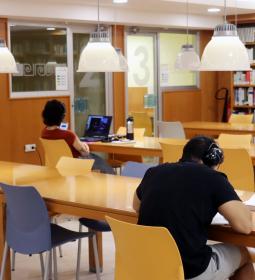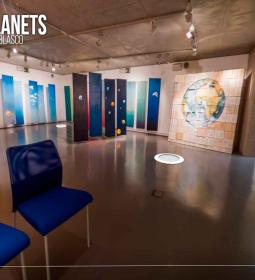The pieces, among which there are espadrilles and ceramic remains, will be cataloged and analyzed by MARQ
Objects found in the consolidation works of Les Caletes Tower will allow to know how its lookouts lived

The consolidation works of Les Caletes Tower, carried out by the Provincial Coastal Service of the Government of Spain, have served to ensure the survival of this Property of Cultural Interest (BIC) and the cliff on which it rises. But in addition, during the performance they have found various objects that will allow to know how the lookouts lived there. Objects of everyday life that have been delivered to MARQ for study, cataloging and dating.
Among these objects are several textile elements -various espadrilles of different numbers-, remains of the crockery used to store water, fragments of vine used to light the fires that allowed to give the warning voice in case of piratical incursions on the coast, or lead bullets of defense muskets.
This has been transferred by the archeologist team responsible for the action to the mayor, Toni Pérez, and the councilor of Historical Heritage, Ana Pellicer, during the visit to the tower taken today by the Government delegate in the Valencian Community, Juan Carlos Moragues ; the sub-delegate of the Government in Alicante, José Miguel Saval; and the head of the Provincial Coastal Service, Rosa de los Ríos.
The director of MARQ, Manuel Olcina, indicated that this finding is "exceptional", since "the organic remains are very difficult to find in our land because of the type of terrain"; and added that this set of objects "deserves to be exposed and disseminated". In this regard, the mayor indicated that "the work will be developed in coordination with MARQ so that these pieces can be exhibited in Benidorm taking advantage of the next exhibition planned at Boca Calvari Museum centered on Serra Gelada", the natural park in which is located Les Caletes Tower.
The team of archaeologists explained that this "unique" material has been preserved "because the tower was clogged", and stressed that with remains found it can also be known "the life of that time." The experts have been able to study "the life of the building and the different construction moments" of this watchtower of the sixteenth century.
The mayor said that "we could not imagine what we were going to find" during the restoration process of a tower that was in a state of very advanced deterioration and "that we all thought it had decapitated." However, with this action, "one and a half meters of tower have been exhumed that no one from the last generations of Benidorm knew".
In addition to the restoration and the discovery of archaeological material, Pérez emphasized the work of consolidating the cliff, which "will allow us to enjoy the tower for many more years." He also congratulated all professionals who have participated in this action, and thanked the Government of Spain for investing in the restoration of the BIC and the consolidation of the cliff.
As detailed by the Government delegate and the head of the Provincial Coastal Service, the emergency works have involved an investment of 350,000 euros and have consisted in the decomposition of the base and replacement of the masonry in the walls of the tower, recovering it according to the available historical documentation. As regards the cliff, it has been stabilized by means of bolts with a glass rod and a protection mesh has been placed on the upper part of the slope.
The head of the Provincial Coastal Service recalled that this action was urgent as the degree of deterioration and ruin threatened "not only the constructive integrity of the tower but also all the cultural values of the monument and its surroundings."
In addition, the state agency has invested another 20,000 euros in the installation of a perimeter wooden fence and in the improvement of access to the tower's surroundings with stairs of the same material.







